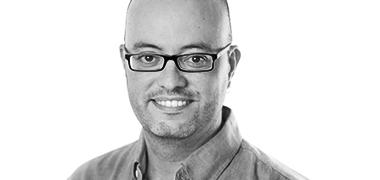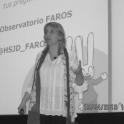We are celebrating the 10-year anniversary of Debats d’Educació by giving the educational community the opportunity to air its views

I am an analyst from the Catalan Institute for the Assessment of Public Policies (Ivàlua), particularly interested in assessing policies and programmes in order to have an effect on the educational sphere. Before joining Ivàlua, I was director of the Education and Fairness Research Group (IGOP, UAB).
The three things I’ve learned
First of all we need to ask ourselves: “What kind of assessment are we talking about?”
To find out what needs to be done with the results of the assessment, the first thing that should be asked is what kind of assessment we are talking about. In first place, we need to clarify what kind of evidence the assessment in question is providing us with. In the educational sphere it is normal to consider very diverse types of exercise as assessment: we examine students, we make diagnoses of schools and colleges, we monitor educational indicators, we try to estimate the impacts of policies, programmes, schools, teachers, etc. And we call all this assessment. Secondly we must look critically at the validity (and honesty) of the results of different kinds of assessments. This is to ensure that each assessment is consistent from a methodological point of view. Depending on the type of evidence we are looking for, we will need to use different kinds of analysis.
Assessing effectiveness: what works in education?
In any scenario, and even more so in one involving economic crisis and reduction of public expenditure capacity, it is necessary to orientate the assessment exercises mentioned above towards obtaining evidence of the effectiveness of different kinds of actions. It is necessary to know whether educational interventions (on different scales) work, whether they are effective and whether they produce the desired impacts. More specifically, we need to be able to identify whether the fluctuations of various indicators (e.g. student levels of performance and qualifications) can be causally attributed to the policies designed to impact on them. It is misleading to say that a certain policy works based only on the improvement that may have been experienced in certain indicators after its application. In fact, impact assessment is an issue we need to work on in this country.
The results of assessment used to achieve improvement: greater excellence and fairness
Once we are sure of the robustness (and honesty) of the assessment results (particularly when they are presented as an impact study), it is a commonplace to support their use in order to improve policies and processes to achieve greater excellence, fairness, effectiveness and efficiency in an education system. This is the evidence-based policy-making view, showing what works and what does not. This view is an essential one and it is easy to support, but is not always easy to orchestrate in practice. However solid the evidence may be, its translation into programmes is not always self-evident. It requires brave, intelligent decisions on managing change; decisions that manage to make assessment a tool for stimulus and collective learning rather than a device for accusation and punishment.














 The texts published on this website are, unless otherwise indicated, covered by the Creative Commons Spain Attribution 3.0 licence. You may copy, distribute, transmit and adapt the work, provided you attribute it (authorship, journal name, publisher) in the manner specified by the author(s) or licensor(s). The full text of the licence can be consulted here:
The texts published on this website are, unless otherwise indicated, covered by the Creative Commons Spain Attribution 3.0 licence. You may copy, distribute, transmit and adapt the work, provided you attribute it (authorship, journal name, publisher) in the manner specified by the author(s) or licensor(s). The full text of the licence can be consulted here: